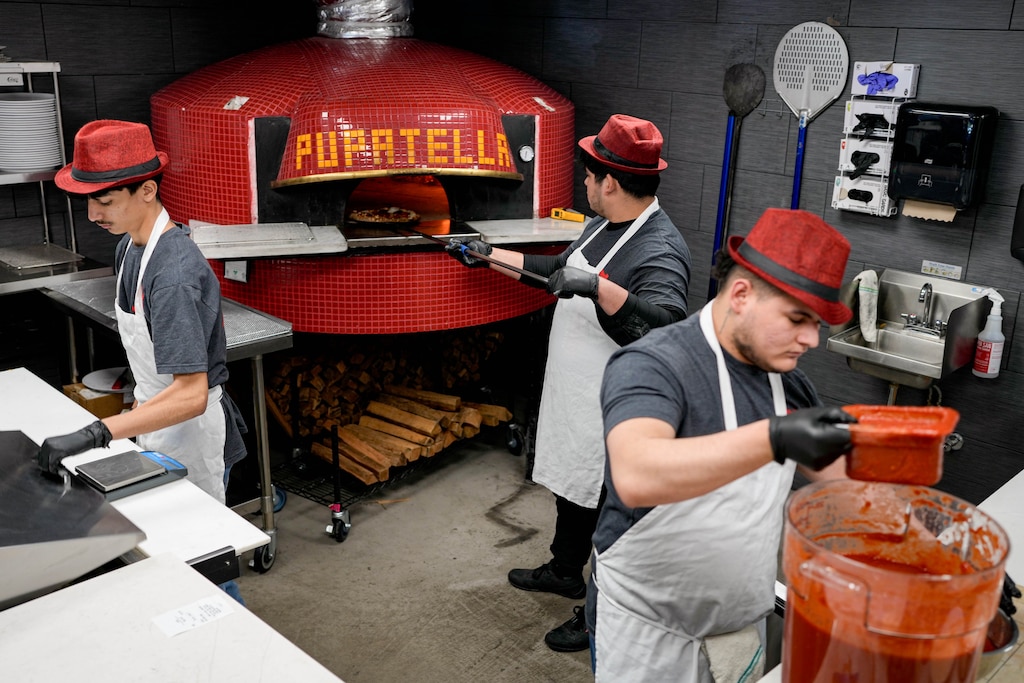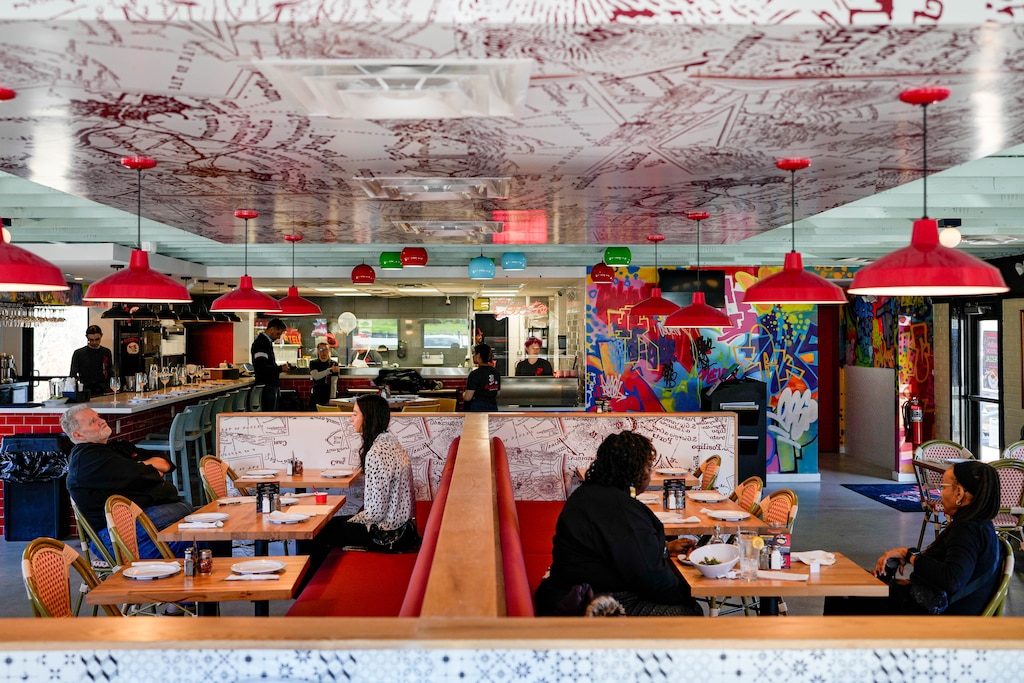Antonio Scotto di Frega’s Neapolitan pizza is legit.
Customers to his Reisterstown restaurant tell di Frega they like it even better than versions they’ve had while traveling to Italy. At Kecco’s Woodfire Kitchen, the Naples, Italy, native uses ultra fine “OO” flour to make his dough, Italian tomatoes to make his sauce, and fires his pizzas in an oven fueled by compressed logs imported from Italy.
Yes, there are plenty of places in the area to get traditional Neapolitan pizza with pillow-soft crusts, lightly charred on the edge, and floppy centers loaded with tomatoes and cheese. But neither di Frega nor any other pizzaiolo in Maryland has made Neapolitan pizza so authentic that it can be called Verace Pizza Napoletana, or VPN. That is, until Pupatella pizzeria opened the doors of its Columbia storefront last month.
The restaurant, in a former Pizza Hut location, brings to Maryland for the first time pizza that’s been certified by the Associazione Verace Pizza Napoletana, an Italian nonprofit dedicated to promoting and protecting one of the country’s most treasured exports.
The Baltimore Banner thanks its sponsors. Become one.

Pupatella founder Enzo Algarme, a Naples, Italy, native who ditched his plans to become a doctor to open his first pizza food truck in Northern Virginia almost 20 years ago, said that as a self-described “food nerd” he decided to pursue VPN certification to ensure that he was “making the pizza the same way it’s been made for 200 years.”
While flatbreads with toppings go back to Ancient Rome, pizza as we know it — topped with tomatoes — didn’t come around until well after the time of the conquistadors. The classic Margherita pizza is often said to have been invented in 1889, an edible Italian flag of tomato, basil and cheese to celebrate the country’s unification. In 2017, UNESCO declared the craft of Neapolitan pizza makers to be an intangible cultural heritage.
“I think Neapolitan pizza can be at its essence a very simple product,” said Verde owner Ed Bosco, noting that the Associazione Verace Pizza Napoletana, founded in 1984, has helped protect the essence of Neapolitan pizza at a time when that culinary heritage was at risk. “I think in American pizza, that gets lost,” he said. “There’s too much shit on these pizzas.”
In order to get VPN certified, Pupatella staff needs to follow a strict protocol that governs all aspects of pizza making. Ingredients and toppings should preferably all come from Italy’s Campania region. The pies spend up to 90 seconds in an exclusively wood-fired oven that gets around 900 degrees. Some of the rules could stand to change with the times, Algarme said, like a prohibition on using pre-fermented doughs. “Baking has evolved,” he noted.
Still, going through the trouble and expense of VPN certification helps set Pupatella apart in a crowded pizza marketplace. “Finally, authentic Neapolitan pizza in Columbia!” someone wrote in the Howard County Eats Facebook page, with another calling it “outstanding, and my new favorite pizza in HoCo.”
The Baltimore Banner thanks its sponsors. Become one.


The opening of the branch in Columbia, the company’s 11th location, makes Pupatella the nation’s largest VPN-certified chain, according to Pupatella CEO Jim Biafore. It’s proof of how well they have been able to systematize their processes through the years. And they’re looking for new spots all the time.
Customers who’ve visited Pupatella branches in Virginia might be surprised to check out the Columbia eatery, a sit-down restaurant that Biafore says is more elevated than the restaurant’s previous locations. An extensive wine list includes Italian imports and limoncello made on premises.
Like many in the hospitality industry, Biafore is paying close attention to President Donald Trump’s threatened 200% tariff on wine imported from Europe. But don’t expect to see any major changes to the menu. “Our core business comes with ingredients from Italy, and we’re going to maintain those relationships with our vendors.”
Don’t expect to see that VPN status going anywhere, either. “That’s what separates us.”
Unlike Pupatella, Verde isn’t VPN certified for the simple reason that Bosco didn’t want to pay the fees when he opened the East Baltimore pizzeria back in 2012.
Still, he said, Verde generally follows VPN rules. “It’s really the flavor that they’re after,” Bosco said. “You don’t need the certification to provide that flavor.”




Comments
Welcome to The Banner's subscriber-only commenting community. Please review our community guidelines.